& Construction

Integrated BIM tools, including Revit, AutoCAD, and Civil 3D
& Manufacturing

Professional CAD/CAM tools built on Inventor and AutoCAD
Design an input form, including labelling, ordering and grouping inputs with the Informed Design Codeblocks Editor.
Informed Design includes a Form code blocks environment for controlling input forms.
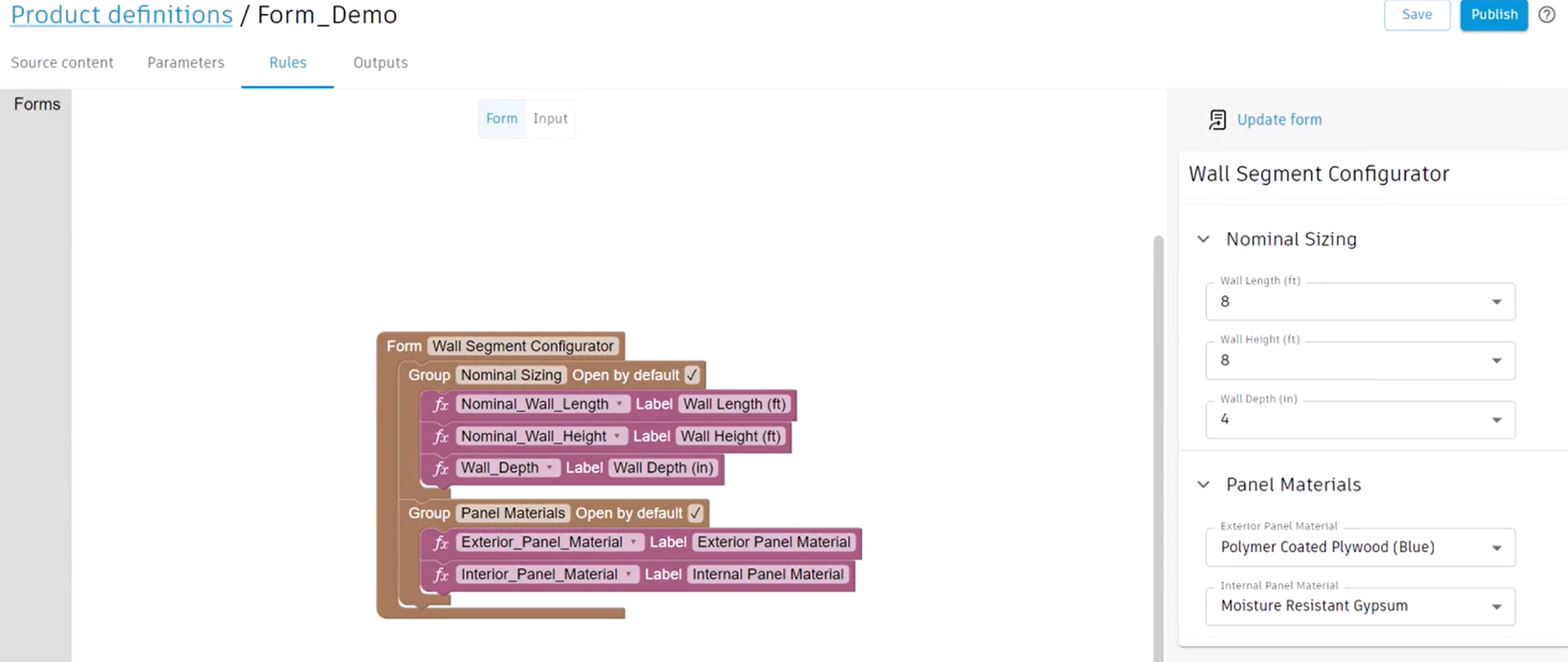
Before using the Form environment, on the Parameters tab, adopt and arrange the parameters required for input logic, input forms, and Inventor model usage.
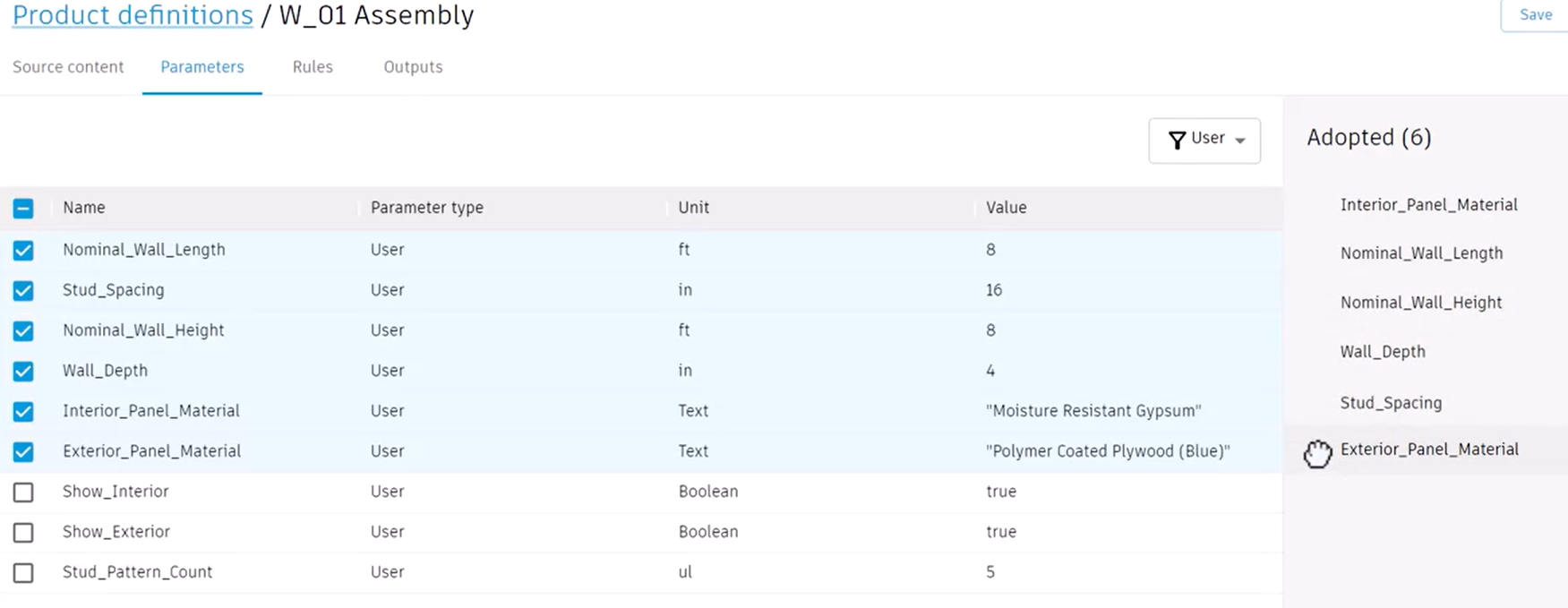
Here, the adoption order is important, so that parameters are passed correctly to the Inventor model. This ensures that updates are driven correctly and also serves as the default order for the Form block.
However, in the Form block, parameters can be reordered without impacting the adoption order.
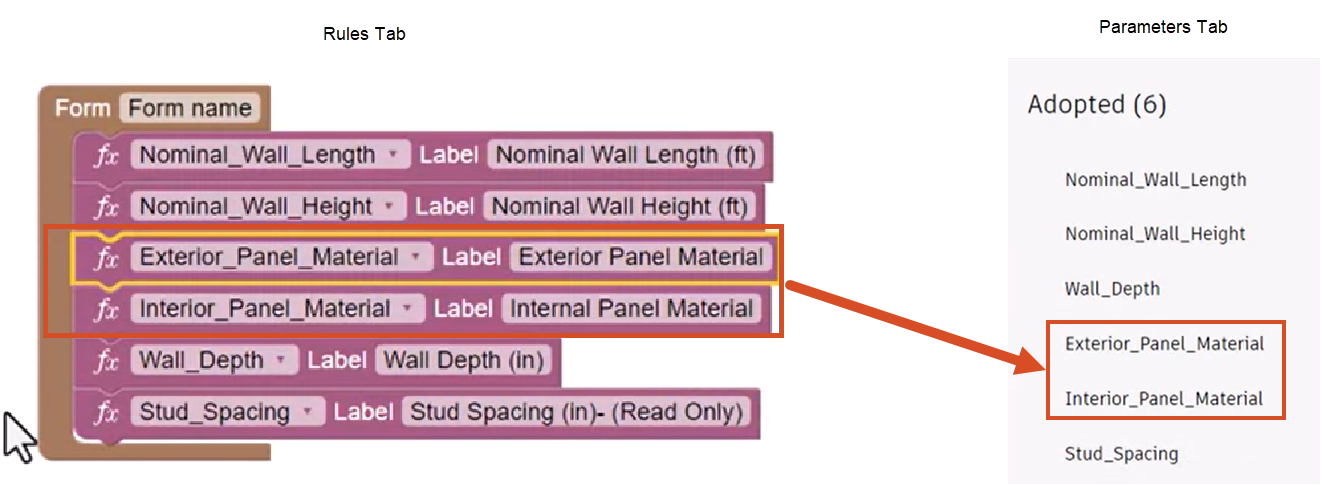
Additional parameters can be adopted and rearranged.
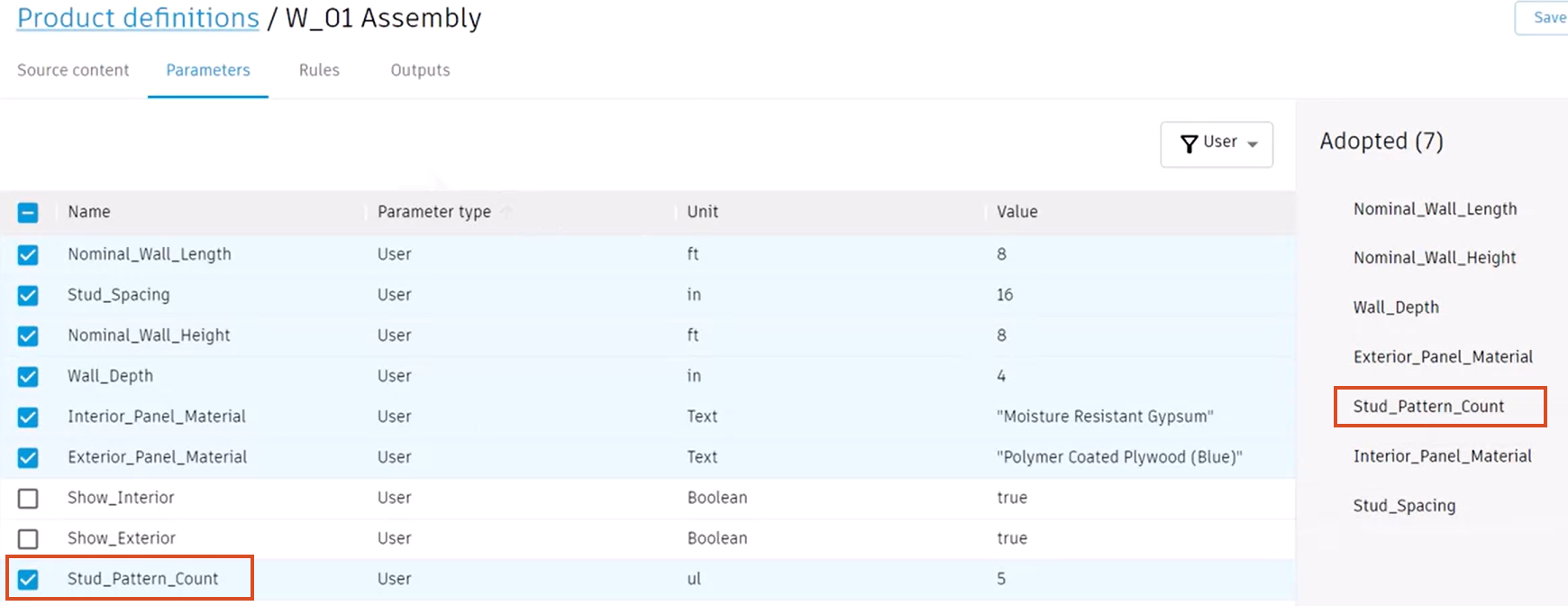
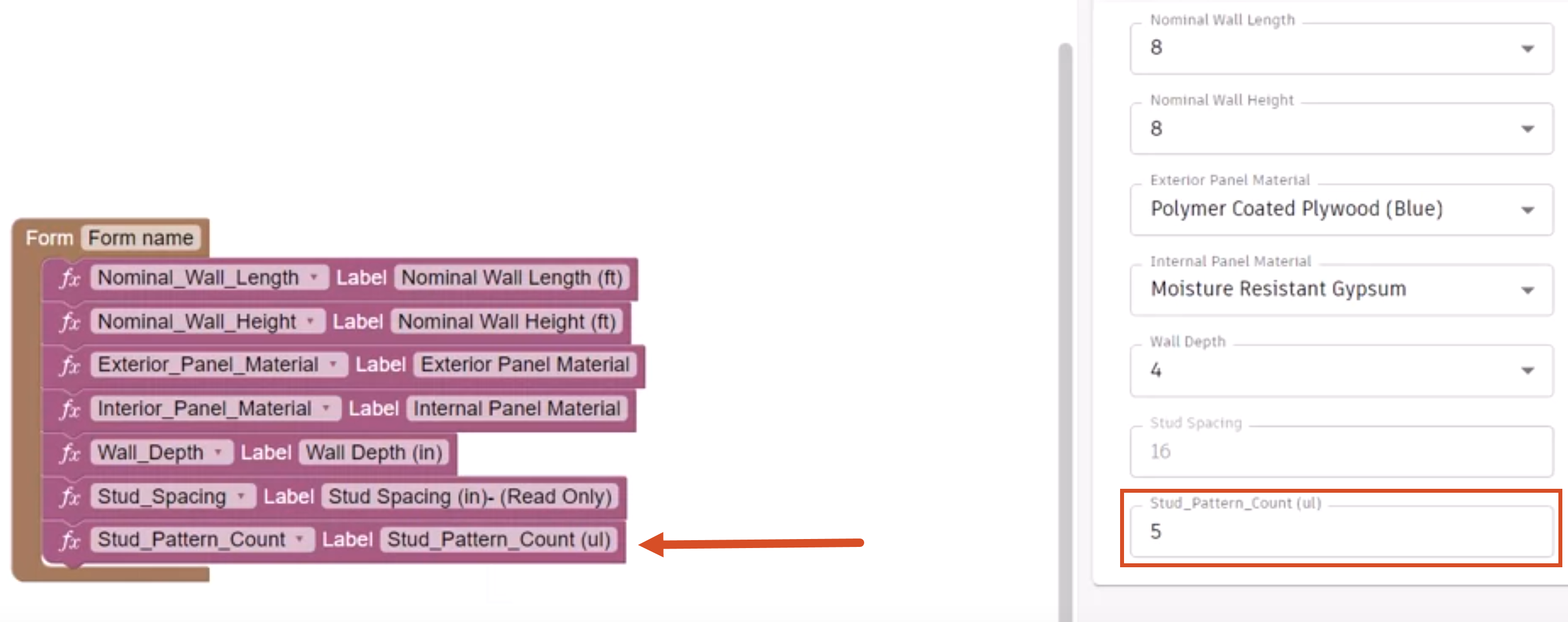
Parameters can also be unadopted.
Parameters can be gathered into logical top-level groups within the form block, and a group can be collapsed or expanded in the form by default.

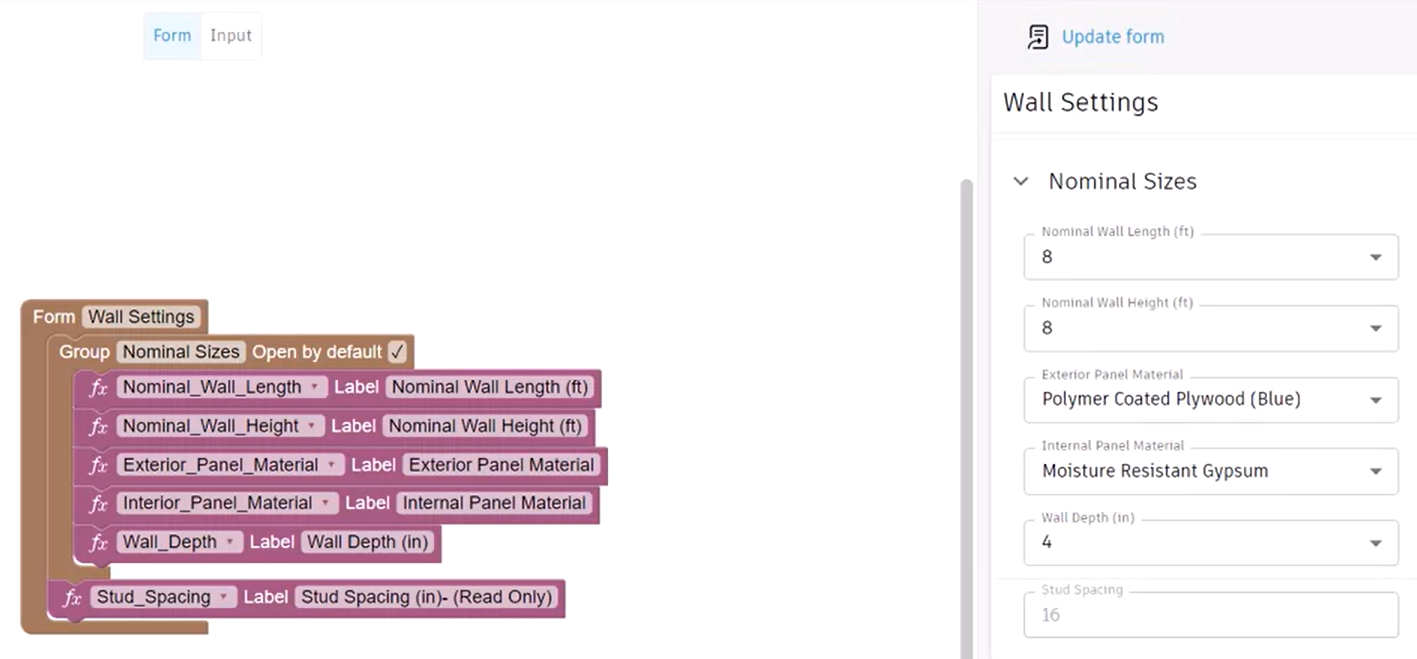
Form groups cannot be nested, and all associated parameter blocks are deleted when a group is deleted.
Parameter inputs can be duplicated for a form to show critical values within different form groups. If the value is modified for one input parameter, then the value automatically updates for any duplicates.
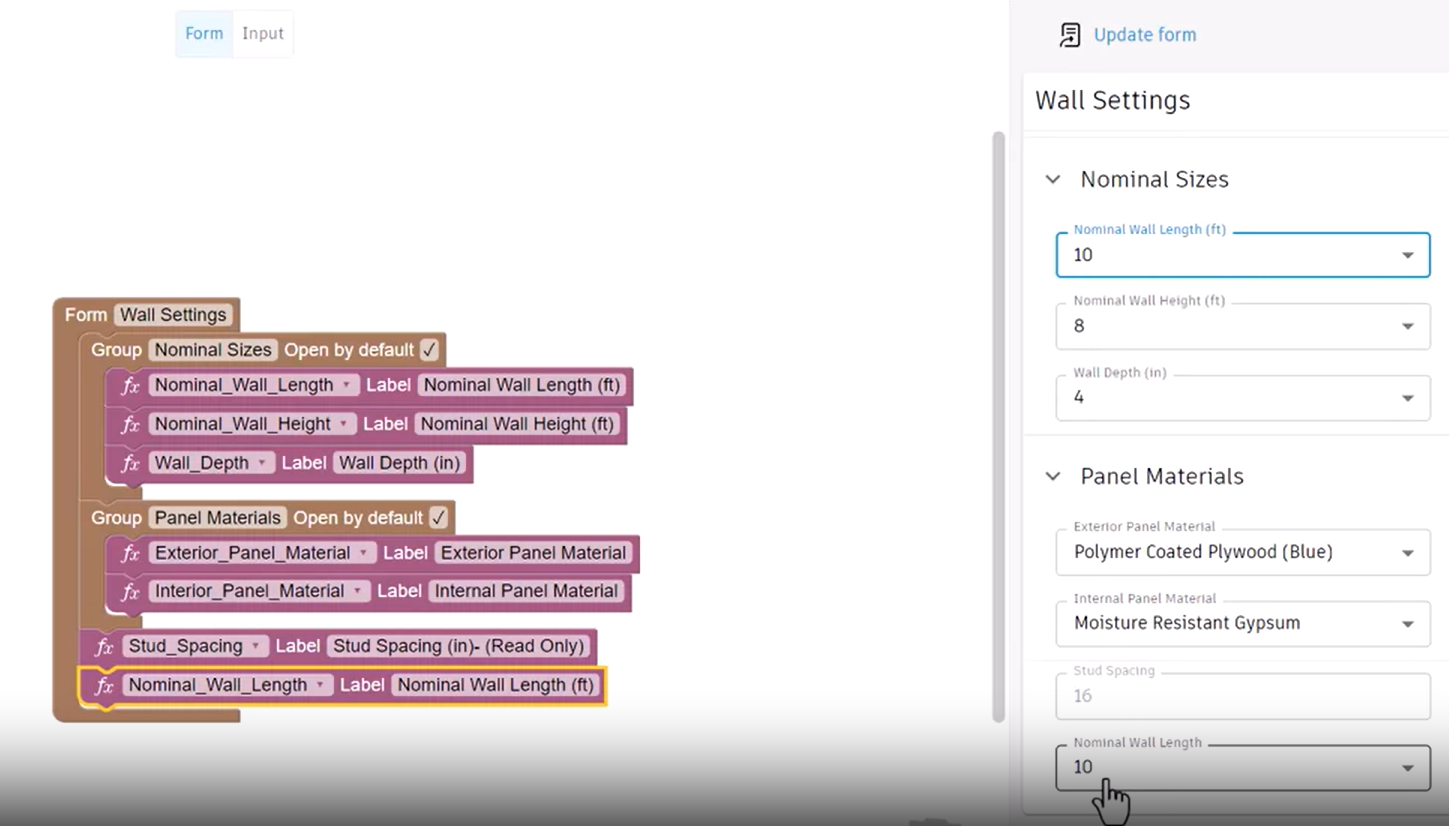
Input rules can still be utilized to control parameters in the form. For example, Input rules can be set to read-only, visible or invisible, or to deviate from the default form label.
The parameter label in the Form block is a static label and is unaffected by label changes made in the Input rules.
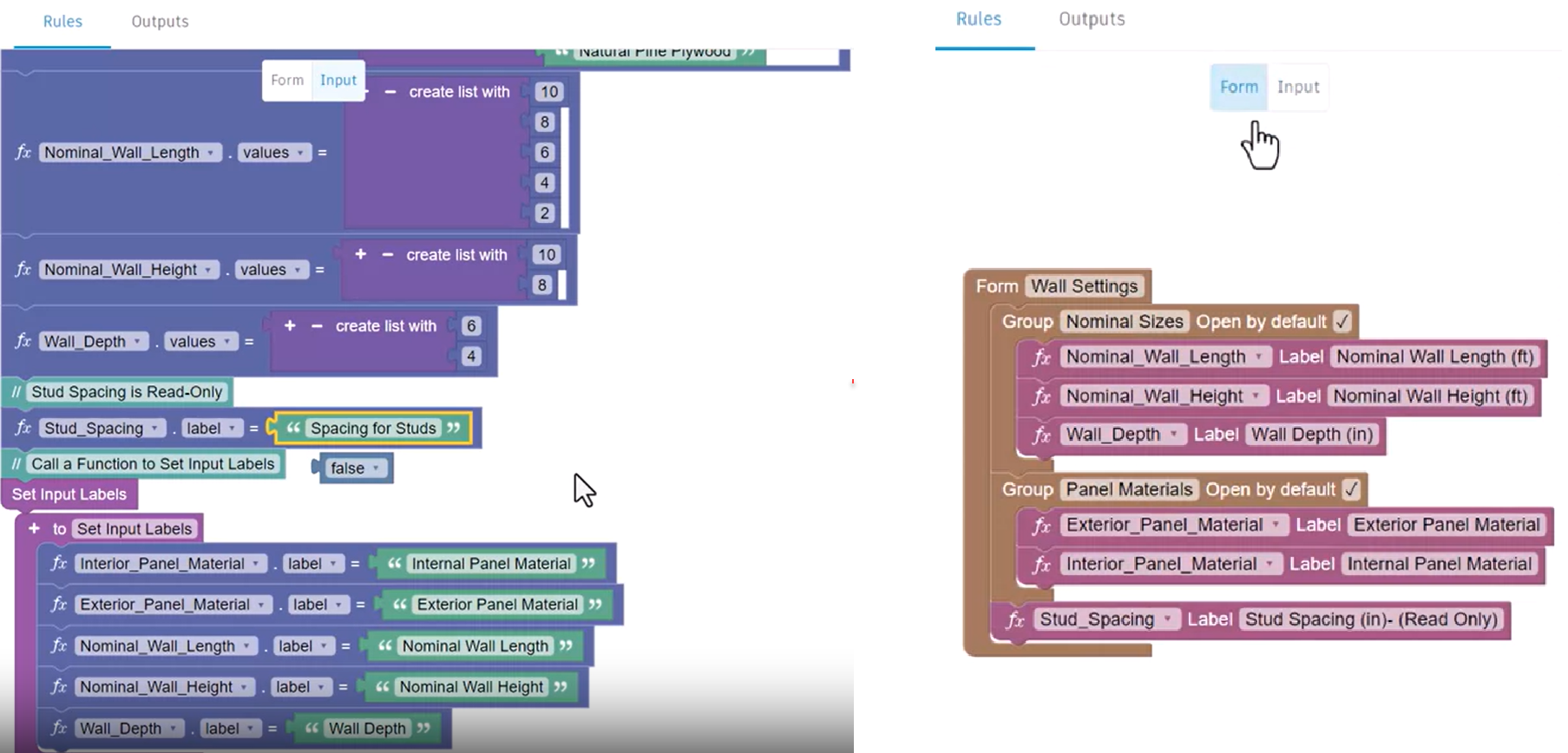
Parameter labels in the Form block are also used as the column headers in the existing variant tables.
Additionally, the Input rule code blocks can remain in the code string even if a parameter is removed from the Form block.
In summary, Form code blocks allow for increased control over the frame layout, via grouping and labeling, while preserving modification capabilities within Input rules.